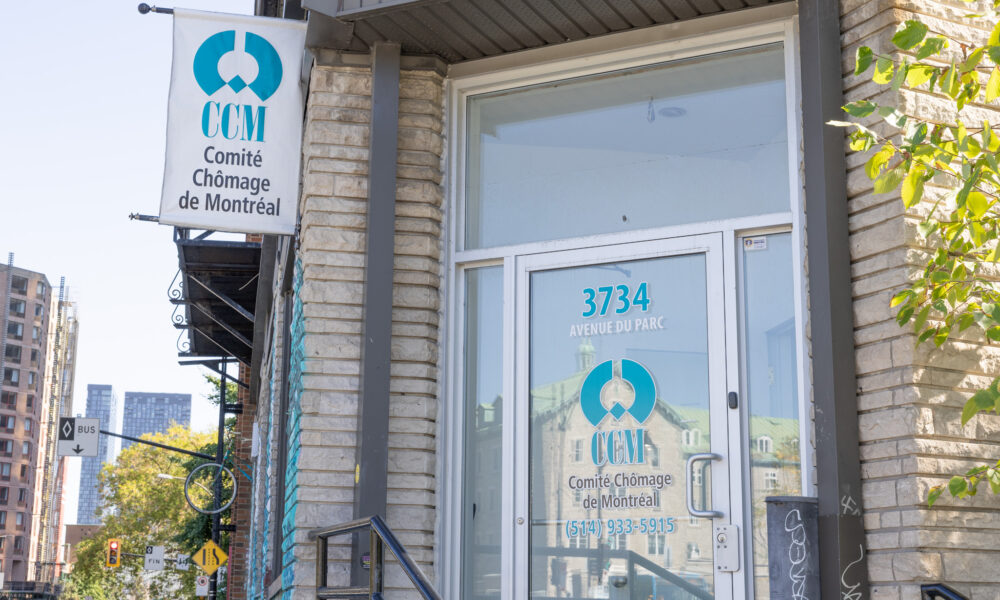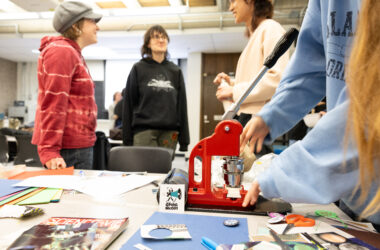Desjardins economists Kari Norman, LJ Valencia, and Randall Barlett published a report on Sept. 4 explaining the recent, rapid increase in youth unemployment rates in Canada. The unemployment rate for all youth has increased from 10 per cent in 2022 to 14 per cent in mid-2025. The burden has fallen particularly heavily on 15- to 19-year-olds, with one in five of those willing to work unable to find a job.
Canada’s National Council of Unemployed Workers (NCUW) is an organization working to promote the rights and privileges to which unemployed workers are entitled. Milan Bernard, co-spokesperson of the NCUW and lecturer at the Département de science politique at Université de Montréal, expressed in a written statement to The Tribune that although he has not observed a sharp increase in young people reaching out to the organization, the rising unemployment rate among youth is still concerning.
“We have not seen a difference in the profile of people coming to our offices for help with Employment Insurance (EI),” he wrote. “[Nonetheless], it is alarming to see that unemployment rates are so high for young people. It is not a good sign for the economy.”
The Desjardins report outlined that the youth unemployment rate is now at a level typically only seen during economic recessions. Bernard emphasized how in periods like these, young workers may find it especially difficult to access unemployment resources.
“It is often harder for young workers to qualify to get EI benefits, because of the admissibility criteria,” he said. “It is something that we have called on the government to address, especially in the current context with the [United States] trade war and economic instability.”
In an interview with The Tribune, Caroline Menton, U1 Science, explained that finding a job in Montreal may be especially difficult for anglophone students at McGill because of the language barrier.
“Most entry-level jobs are public-facing, and employers obviously require French for a customer service job,” she said.
Menton also described students’ lack of awareness around and access to McGill resources when it comes to helping youth at the university secure employment.
“I wasn’t even aware McGill offered help with [job searches],” she said. “For any of my friends that were looking for jobs at any point, I never heard them mention using any McGill resources. [….] If anything, [McGill] could advertise those more, if they [even] exist.”
Currently, the McGill Career Planning Service (CaPS) supports students with career advancement and leadership development. Through activities like Career Fairs, workshops, and advising services, CaPS oversees a range of internship, part-time, and full-time opportunities for students in search of employment.
Midnight Kitchen (MK) is a nonprofit collective that works to increase food accessibility on McGill campus and across Montreal. In a written statement to The Tribune, a representative from MK noted that they have observed a recent increase in the number of people attending their programming, though rising youth unemployment is not necessarily a factor.
“Since the University Centre has re-opened, we have seen a large increase of service users,” the representative wrote. “Our service has also expanded with our capacity and outreach over the years.”
MK then mentioned the many other McGill food groups available to support students who are experiencing financial difficulties.
“McGill has been described as a food desert—with limited groceries and affordable food options on and surrounding the campus,” the MK representative wrote to The Tribune. “There are many […] great student food groups looking to build the McGill Food Coalition, an accessible food system at McGill that does not rely on the corporate food services contracted by McGill.”
MK concluded by highlighting how its new structure has been designed in part to help open up more opportunities for unemployed students.
“We know from speaking with students […] that it can be very difficult to find a job for a variety of reasons, such as language barriers, scheduling restrictions, and required experience as the job market becomes more and more competitive,” the representative wrote. “Over the summer we worked on a new structure that would allow for more part-time positions, with some being open only to students. With this new structure, we are able to hire more students, and hopefully increase student engagement.”









